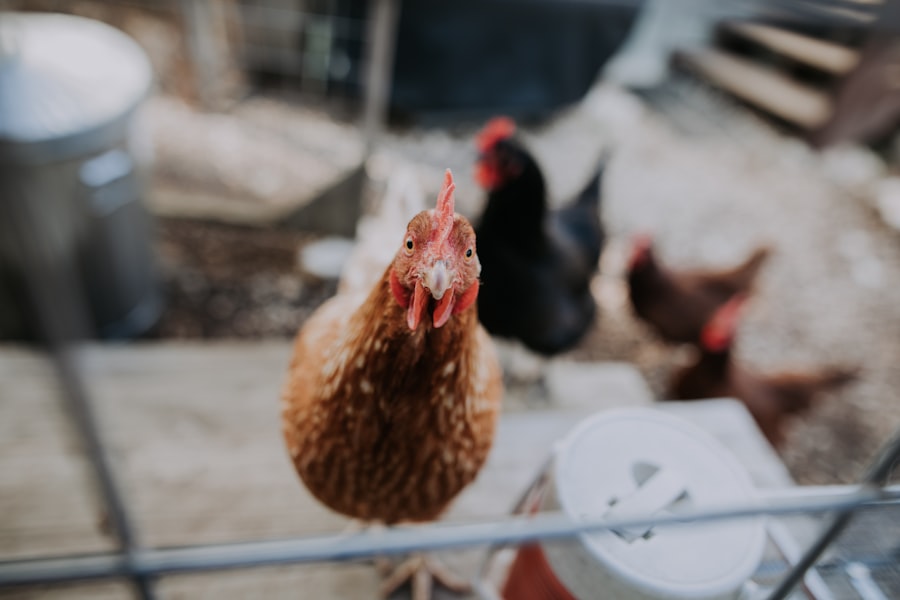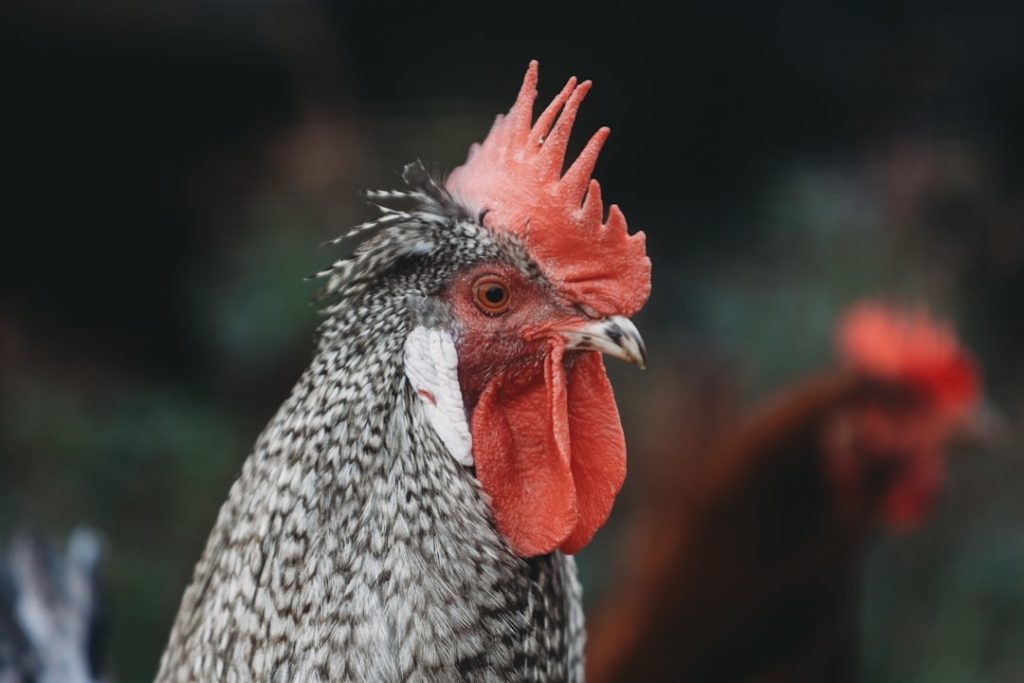Chicken incubation is a controlled process that replicates the conditions provided by a broody hen to hatch eggs. This method involves precise regulation of temperature, humidity, and egg rotation. Incubation can be accomplished using various techniques, ranging from simple homemade setups to sophisticated commercial incubators.
The typical incubation period for chicken eggs is approximately 21 days, during which careful monitoring of egg development is essential. The practice of incubating chicken eggs is common among poultry enthusiasts and farmers. It offers greater control over the hatching process compared to natural brooding and can serve as an educational experience for both children and adults.
Successful incubation requires a thorough understanding of the factors influencing the process, including temperature, humidity, ventilation, and egg turning frequency. Key considerations for effective incubation include maintaining a consistent temperature of around 99.5°F (37.5°C), proper humidity levels (50-60% for the first 18 days, increasing to 70-80% for the last three days), and regular turning of the eggs (at least 3-5 times daily). Monitoring these factors and recognizing signs of proper development, such as air cell growth and embryo movement, are crucial for achieving high hatch rates.
Incubation can be performed on various scales, from small hobby setups to large commercial operations. Regardless of scale, attention to detail and adherence to best practices are essential for optimal results. As the hatching date approaches, it is important to prepare for the emergence of chicks and to have appropriate brooding facilities ready to receive the newly hatched birds.
Table of Contents
Key Takeaways
- Incubating chicken eggs is a process of artificially simulating the conditions necessary for eggs to hatch.
- Factors affecting the incubation period include temperature, humidity, and egg turning frequency.
- The maximum duration for keeping chickens in an incubator is typically 21 days, although some breeds may require a few extra days.
- Signs that chickens are ready to be removed from the incubator include chirping, pipping, and movement within the egg.
- Risks of keeping chickens in the incubator for too long include dehydration, malpositioning, and decreased hatchability.
- Tips for successful incubation include maintaining proper temperature and humidity levels, regular egg turning, and proper sanitation of the incubator.
- In conclusion, successful incubation requires careful monitoring of the incubation environment and attention to the needs of the developing chicks.
Factors Affecting Incubation Period
Temperature: The Key to Embryonic Development
The ideal temperature for incubating chicken eggs is around 99.5 degrees Fahrenheit, with slight variations allowed throughout the incubation period. Fluctuations in temperature can have a significant impact on the development of the embryos, so it is important to monitor and maintain a consistent temperature throughout the entire process.
Humidity: A Critical Factor in Incubation
Humidity is another critical factor that can affect the success of incubation. The ideal humidity level for chicken eggs is around 50-55% during the first 18 days of incubation, and then increased to 65-75% during the final days before hatching. Proper humidity levels are essential for the development of the embryos and the successful hatching of healthy chicks.
Egg Turning and Quality: Ensuring a Successful Hatch
Egg turning is also crucial for a successful hatch, as it helps prevent the embryos from sticking to the inner membrane of the egg and promotes even development. Eggs should be turned at least three times a day during the first 18 days of incubation, after which they should be left undisturbed until hatching. Additionally, egg quality can significantly impact the success of incubation. Fresh, fertile eggs from healthy hens are more likely to hatch successfully than older or infertile eggs. It is essential to carefully select and handle eggs before placing them in the incubator to maximize the chances of a successful hatch.
Maximum Duration for Keeping Chickens in an Incubator

The maximum duration for keeping chickens in an incubator is typically around 21 days, which is the average incubation period for most chicken breeds. During this time, the eggs are carefully monitored for signs of development, and the necessary adjustments are made to temperature and humidity levels to ensure optimal conditions for hatching. It is essential not to keep chicken eggs in the incubator for longer than 21 days, as prolonged incubation can lead to decreased hatch rates and an increased risk of developmental abnormalities in the chicks.
After 21 days, any remaining unhatched eggs should be carefully inspected to determine if they are viable or if they should be discarded. While it is crucial to adhere to the 21-day maximum duration for keeping chickens in an incubator, it is equally important to be patient and avoid prematurely removing eggs from the incubator before they have had a chance to hatch naturally. Rushing the process can result in underdeveloped or weak chicks that may struggle to survive.
Signs that Chickens are Ready to be Removed from the Incubator
There are several signs that indicate when chickens are ready to be removed from the incubator. The most obvious sign is when the chicks begin to pip, or make small cracks in their shells using their egg tooth. Pipping usually occurs around day 20-21 of incubation and is a clear indication that hatching is imminent.
Another sign that chicks are ready to be removed from the incubator is when they start chirping and moving around inside their eggs. This activity indicates that they have absorbed all of the yolk sac and are ready to emerge from their shells. It is essential not to rush the process and remove chicks from the incubator too early, as they may still be attached to their yolk sacs or have not fully absorbed them, which can lead to health issues or even death.
It is best to wait until the chicks have fully hatched and dried off before transferring them to a brooder.
Risks of Keeping Chickens in the Incubator for Too Long
Keeping chickens in the incubator for too long can pose several risks to their health and development. Prolonged incubation can lead to decreased hatch rates, as embryos may become overdeveloped and struggle to hatch successfully. Additionally, extended exposure to high humidity levels can cause chicks to become waterlogged, making it difficult for them to break free from their shells.
Overdeveloped embryos may also suffer from developmental abnormalities or physical deformities, which can impact their ability to thrive after hatching. It is crucial to adhere to the 21-day maximum duration for keeping chickens in an incubator to minimize these risks and ensure the health and well-being of the chicks. Furthermore, prolonged incubation can also have negative effects on the overall hatchability of a batch of eggs.
Unhatched eggs that remain in the incubator beyond 21 days can release harmful bacteria and gases, which can negatively impact the health of developing embryos and reduce the chances of successful hatching.
Tips for Successful Incubation

Accurate Monitoring and Adjustments
Investing in a reliable thermometer and hygrometer is vital for accurately monitoring temperature and humidity levels and making any necessary adjustments.
Proper egg handling is also critical for successful incubation. Eggs should be stored at room temperature before being placed in the incubator and should be turned at least three times a day during the first 18 days of incubation. It is essential to handle eggs gently and avoid sudden movements that could damage developing embryos.
Regular Inspection and Monitoring
Regularly inspecting eggs for signs of fertility and monitoring their development throughout the incubation period can help identify any potential issues early on and take corrective action if necessary.
Maintaining a Clean Environment and Patience
It is also important to maintain a clean and sanitary environment within the incubator to minimize the risk of contamination and ensure optimal conditions for hatching. Finally, patience is key when incubating chicken eggs. It is essential not to rush the process or interfere with natural hatching behaviors, as this can negatively impact the health and development of the chicks.
By following these tips and maintaining careful attention to detail, you can increase your chances of a successful hatch and enjoy watching your new chicks thrive.
Conclusion and Final Thoughts
Incubating chickens can be a rewarding and educational experience, but it requires careful attention to detail and a good understanding of the factors that can affect the success of the hatch. By monitoring and maintaining optimal temperature, humidity, and egg turning throughout the entire process, you can increase your chances of a successful hatch and enjoy watching your new chicks thrive. It is crucial not to keep chicken eggs in the incubator for longer than 21 days, as prolonged incubation can lead to decreased hatch rates and an increased risk of developmental abnormalities in the chicks.
By being patient and waiting for clear signs that indicate when chicks are ready to be removed from the incubator, you can ensure their health and well-being after hatching. By following these tips and maintaining careful attention to detail, you can increase your chances of a successful hatch and enjoy watching your new chicks thrive. Whether you are a small-scale hobbyist or a commercial poultry farmer, understanding these factors and adhering to best practices for successful incubation will help you achieve a rewarding outcome and raise healthy chickens.
If you’re interested in learning more about how to keep chickens, you might want to check out this article on chicken coop designs in Grand Island, NE. It provides valuable information on creating a suitable environment for your chickens to thrive.
FAQs
What is an incubator?
An incubator is a device used to simulate the conditions necessary for eggs to hatch, such as temperature and humidity.
How long can you keep chickens in an incubator?
Chickens can typically be kept in an incubator for 21 days before they hatch. It is important to maintain the proper temperature and humidity levels during this time.
What happens if chickens are kept in an incubator for too long?
If chickens are kept in an incubator for too long, they may become weak or die. It is important to remove the chicks from the incubator once they have hatched.
What are the ideal conditions for keeping chickens in an incubator?
The ideal temperature for keeping chickens in an incubator is around 99.5 degrees Fahrenheit, and the humidity should be kept at around 50-55% for the first 18 days, and then increased to 65-75% for the last 3 days before hatching.
Can you keep chickens in an incubator for longer than 21 days?
It is not recommended to keep chickens in an incubator for longer than 21 days, as this can lead to health issues and decreased hatch rates.
Meet Walter, the feathered-friend fanatic of Florida! Nestled in the sunshine state, Walter struts through life with his feathered companions, clucking his way to happiness. With a coop that’s fancier than a five-star hotel, he’s the Don Juan of the chicken world. When he’s not teaching his hens to do the cha-cha, you’ll find him in a heated debate with his prized rooster, Sir Clucks-a-Lot. Walter’s poultry passion is no yolk; he’s the sunny-side-up guy you never knew you needed in your flock of friends!







